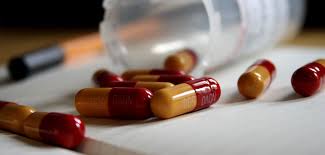Driving Under the Influence of Drugs (DUID)

Driving Under the Influence of Drugs (DUID) is a growing problem in California. The California legislature has introduced new laws and changed existing laws (including Vehicle Code section 23152(f)), to make driving under the influence of various prescription and non-prescription drugs, including cannabis and marijuana, strictly illegal.
What is Driving Under the Influence of Drugs (DUID)?
Driving Under the Influence of Drugs is made illegal under California Vehicle Code section 23152(f), which states: “It is unlawful for a person who is under the influence of any drug to drive a vehicle.”
Being ‘under the influence” is defined as having any amount of a legal or illegal drug that affects your ability to drive a motor vehicle safely.
That blanket prohibition of “any drug” and the subjective decision of whether you can drive “safely” is usually proven through police observations, as well as field sobriety testing as part of the DUI arrest process.
How is someone arrested for Driving Under the Influence of Drugs (DUID)?
Just as they are with alcohol DUI cases, a potential suspect would be pulled over or investigated based upon a violation of the law, usually a traffic law violation such as driving without lights, weaving, or not stopping for a red light or stop sign, among other violations that may constitute probable cause for a DUI stop.
From there, the police officers typically would ask potentially incriminating questions of the driver, and ask them to take the optional field sobriety tests. After field sobriety testing, a person suspected of driving under the influence of drugs will be asked to take a DUI blood test, or in more rare circumstances, a DUI urine test, to collect a sample for testing.
How is a Driving Under the Influence of Drugs (DUID) case proven in court?
The prosecutor has the burden of proving, beyond a reasonable doubt, all of the following:
- That the person accused was operating a motor vehicle;
- That at the time the person was driving a motor vehicle they had a drug in their system; and
- That the drug in their body made it unsafe – in other words, that they were not able to operate the motor vehicle safely due to the drug.
What defenses are there to Driving Under the Influence of Drugs (DUID)?
Unlike alcohol, there is no legal limit for any drug, including marijuana or prescription drugs. As they say in medicine, the dose makes the poison, and the dose or levels in the body, and how those change over time, are very important for understanding how that drug interacts and whether the drug made driving unsafe.
Drug DUI cases are more difficult to prove from the prosecution perspective because of those factors, especially given the high level of proof required.
An expert witness, like a forensic toxicologist, is very helpful for drug DUI cases and has made the difference between winning a Drug DUI case or negotiating cases in the client’s favor.
Contact our firm for help with your Drug DUI case in Orange County. We can put our professional expertise to work and help you.

